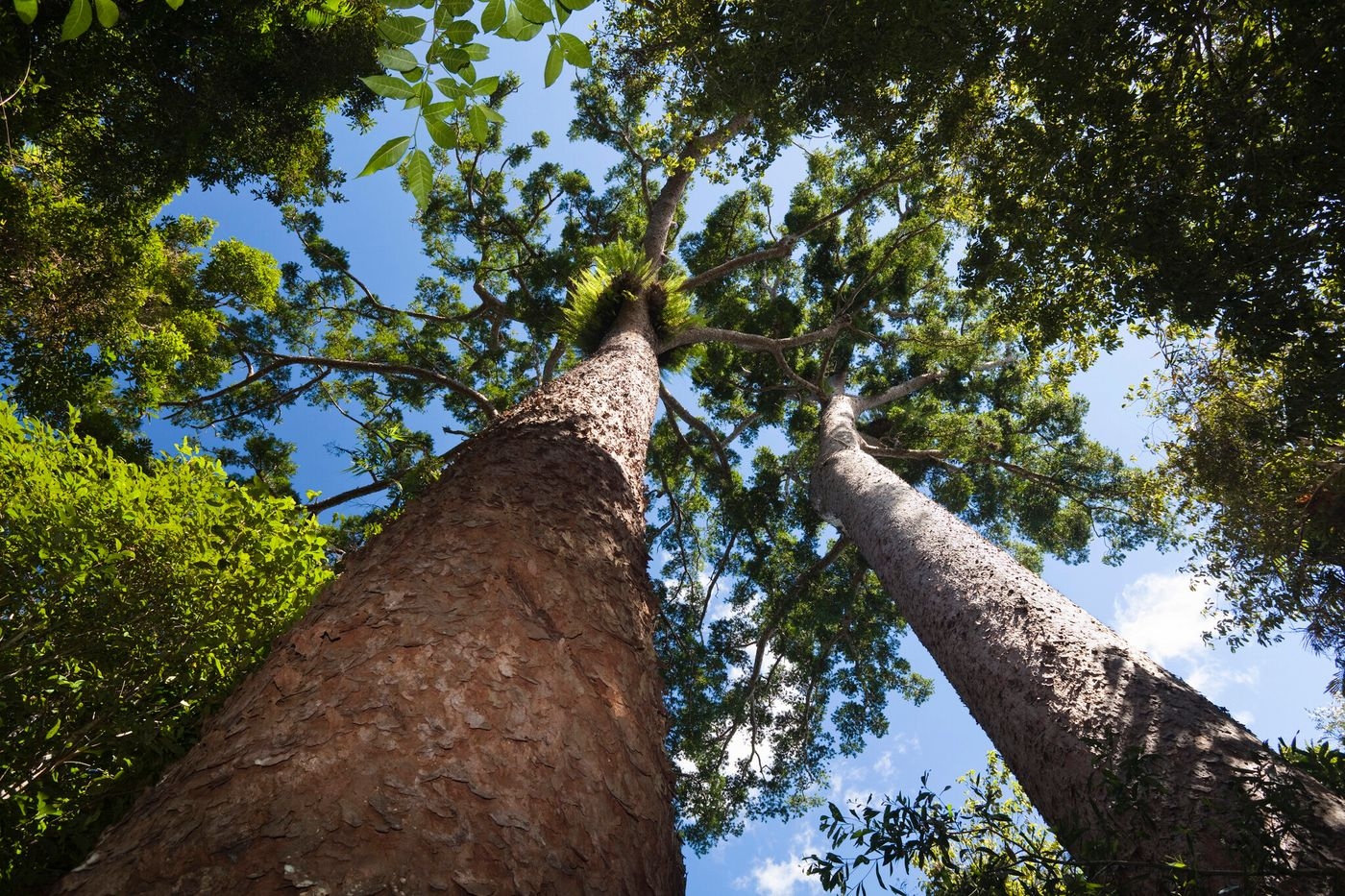Climate: Australia's rainforests are no longer carbon sinks

Australia's tropical forests are the first in the world to emit more carbon dioxide than they absorb, reveals a study published Wednesday, October 16, in the journal Nature, establishing a link between this "very worrying" phenomenon and climate change.
Tropical forests are generally considered essential carbon sinks, absorbing huge amounts of greenhouse gases .
Some studies predict that an increase in atmospheric carbon dioxide could boost forest growth by providing trees with more of the fuel essential for photosynthesis. But new research shows that extreme temperatures have led to more of their death, with tropical rainforests in northern Australia becoming net emitters of carbon.
"This is the first analysis to show that this phenomenon occurs in undisturbed natural forests and persists for many years," said Patrick Meir, lead author of the study, describing the results as "very worrying."
Researchers examined records tracing the growth of rainforests in the Australian state of Queensland over nearly 50 years. They found that around the year 2000, the decomposition of dead trees resulted in more carbon dioxide emissions than was absorbed and stored by growing trunks and branches.
Climate modeling showed that the main cause was extreme temperatures linked to climate change and its effects on atmospheric humidity and drought. Cyclones, whose intensity is expected to increase with climate change, also had an impact.
These results are consistent with research conducted in the Amazon showing that the gradual death of trees weakens the forest's carbon storage capacity, notes David Bauman, a researcher at the French National Institute of Research for Development (INRD) and second author of the study.
"In this sense, our results are not surprising, but the moment (...) has arrived earlier than expected and the effects of probable climatic factors (high temperatures, drought) are stronger than expected."
This study suggests that other tropical forests could experience the same change, but the authors caution that more data and research are needed. "It appears that all tropical forests are likely to respond in fairly similar ways," says Patrick Meir, but "the exact mechanisms and timescales will vary by region."
"This study shows that the effects of climate change on forest carbon are more severe than previously reported," said Melanie Zeppel, deputy director of the investment firm Pollination, which specializes in climate change . "There is an urgent need to act on climate change; it must be a top priority," she added.
Despite its growing vulnerability to natural disasters linked to climate change, Australia remains one of the world's largest coal exporters and continues to heavily subsidize its fossil fuels. The country's per capita carbon dioxide emissions are among the highest in the world, according to World Bank figures.
Globally, the year 2024 alone, and the average of the two years 2023-2024, exceeded 1.5°C of warming compared to the pre-industrial era, according to the European Copernicus Observatory, a sign of a continuous and unprecedented rise in temperatures in modern history.
La Croıx





